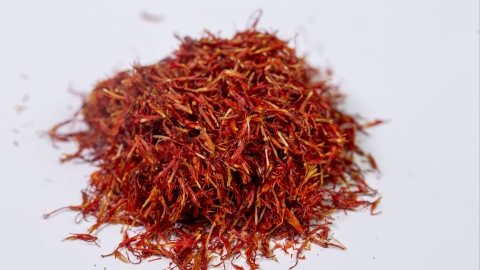Does saffron tonify the kidney?
Generally speaking, saffron can help support kidney health, but its therapeutic effect is relatively weak. The detailed analysis is as follows:

Saffron is the dried stigma of the iris plant Crocus sativus. Its main functions include promoting blood circulation and removing blood stasis, relieving depression and calming the mind, cooling the blood, and detoxifying. It can be used to treat conditions such as menstrual disorders, postpartum lochia retention, amenorrhea, dysmenorrhea, and traumatic injuries. Saffron can improve renal blood circulation and has a certain reparative effect on blood vessels. It may benefit the kidneys by lowering blood pressure and reducing inflammation. However, because saffron is slightly warm and pungent in nature and primarily affects the heart and liver meridians, it belongs to the category of blood-activating herbs, meaning its direct effect on the kidneys is limited. In daily life, maintaining healthy kidney function can be better achieved by developing good habits such as going to bed on time, avoiding late nights, consuming more protein-rich foods, and moderately increasing intake of trace elements such as zinc, selenium, and copper.
If saffron is needed for use, it should be taken under the guidance of a doctor to ensure effectiveness and safety. At the same time, maintaining a balanced diet and getting adequate rest will further support kidney health.








